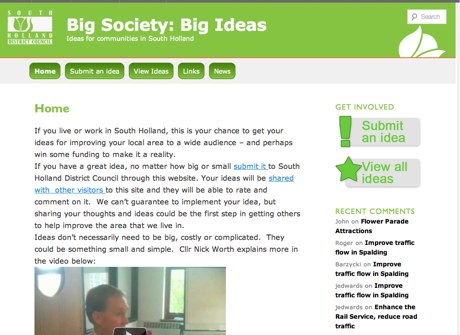I find this stuff so you don’t have to:
- Enyo JavaScript Application Framework – "Use the same framework to develop apps for the web and for all major platforms, desktop and mobile."
- Features | Re-usable Drupal recipes for government websites – Nice New Zealand government site sharing open source compontents for Drupal for gov webbies
- Consultation Principles – guidance | Cabinet Office – "…the Government is improving the way it consults by adopting a more proportionate and targeted approach, so that the type and scale of engagement is proportional to the potential impacts of the proposal."
- Inviting comments on a draft bill | Stephen Hale – "With a public commitment to feed the comments that we receive directly into the process of parliamentary scrutiny via the team working on the bill, we’re effectively enabling people to publicly contribute to the drafting of law."
- The SEO war – fighting the good fight in search – A rare thing indeed – an interesting and genuinely useful post about search engine optimisation! Who would have thought that such a thing was even possible!?!?!

